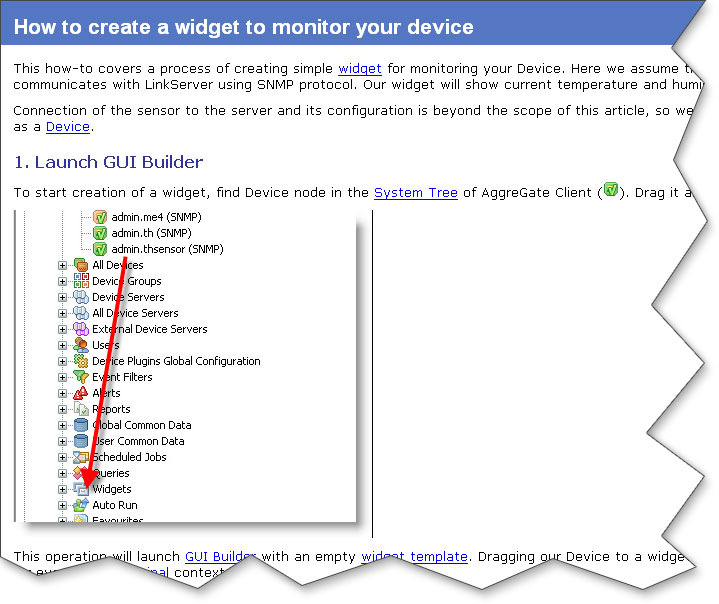Release 4.1
Release 4.1 of AggreGate is now available in the downloads section. This release introduces lots of new features and major improvements:
SNMP support. Any devices supporting Simple Network Management Protocol can now be managed and monitored using AggreGate, without any protocol conversion.
In essence, that means you can now use AggreGate to easily manage servers, routers, switches, network-enabled sensors, and other equipment. All advanced device management features, such as caching settings on the server, replicating configuration, charting and custom user interface components (widgets) are at your disposal when working with SNMP. LinkServer is able to communicate with devices using all versions of SNMP protocol, including secure SNMP v3. SNMP traps are also supported.
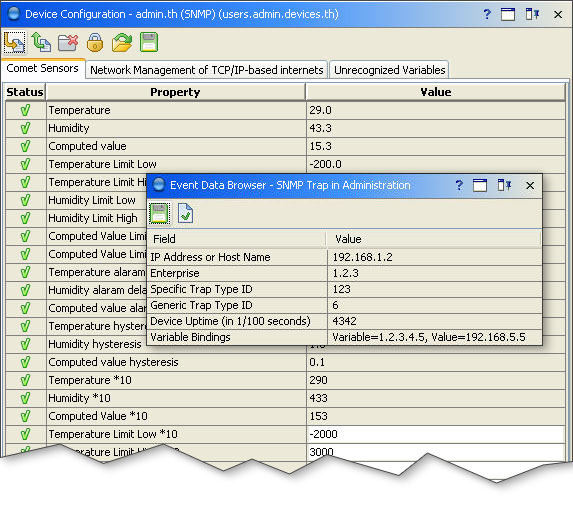
Virtual Device support. The virtual Device is a software-based device emulation component used to test all device management features of AggreGate without having to connect any real hardware to the system. It is useful while evaluating AggreGate or learning to use it and also while debugging and testing various deployment scenarios.
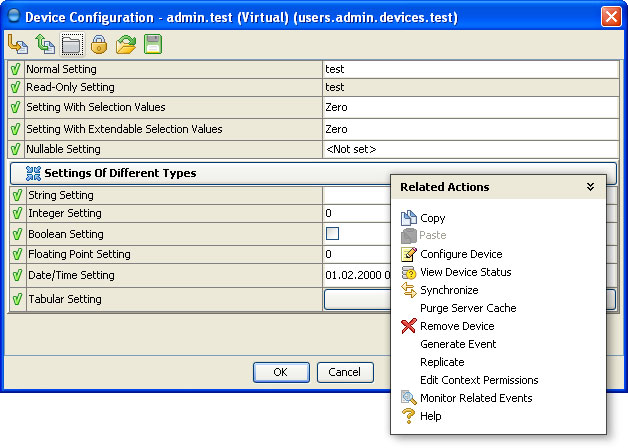
Expression Language functions. AggreGate Expression Language supports data processing functions now. There are many built-in functions useful for triggering alerts, filtering events, etc.

SMS Alerting. Alert notifications can now be SMSed to one or more cellular phones. No need to connect a cellular phone to the machine running AggreGate Client: SMS alerts are sent via the Clickatell SMS gateway.
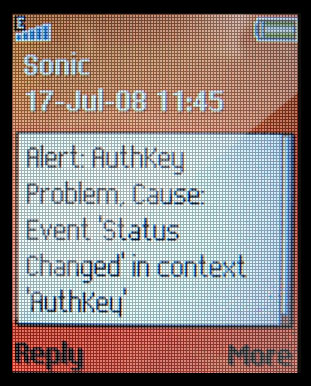
HTML Alert Notifications. Alert notifications are now sent in both plain text and nicely formatted HTML version. Every alert notification contains comprehensive information about the alert and its cause.
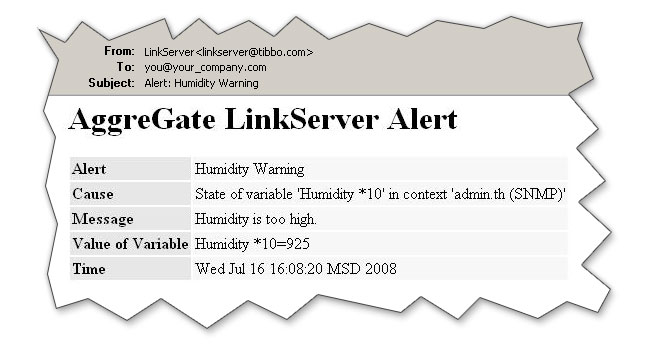
Scripts. Scripts are powerful tools for fine-grained real-time control of the server and connected hardware. They are written in pure, standard Java. Every script runs in the server core and, thus, has access to all in-memory objects and structures of the server, including device data and operations.
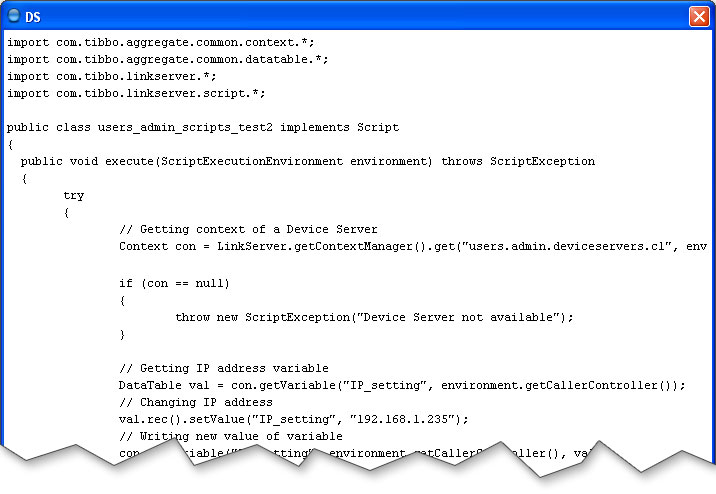
Expression Builder. In earlier AggreGate releases, expressions were entered into text fields as plain text. AggreGate Client now includes an interactive Expression Builder for point-and-click editing of expressions. The Builder also helps validate expressions.
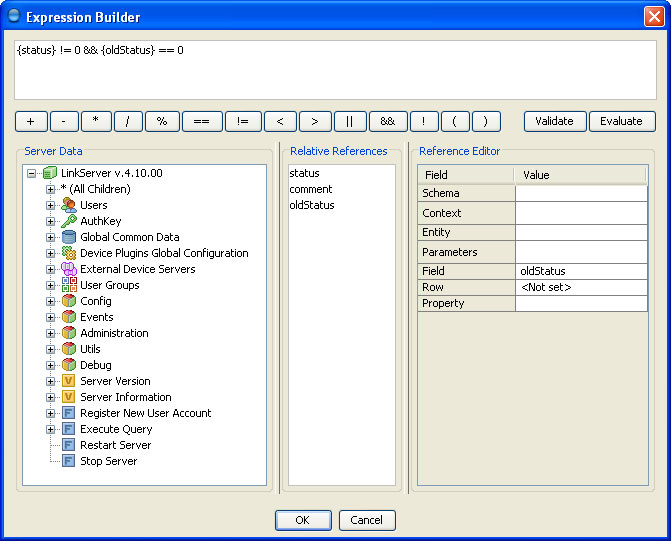
Custom Reports and Embedded Report Editor. Release 4.1 presents user-created reports with fully customizable templates. A Report Editor is fully integrated with AggreGate Client and may be used to edit report templates interactively.
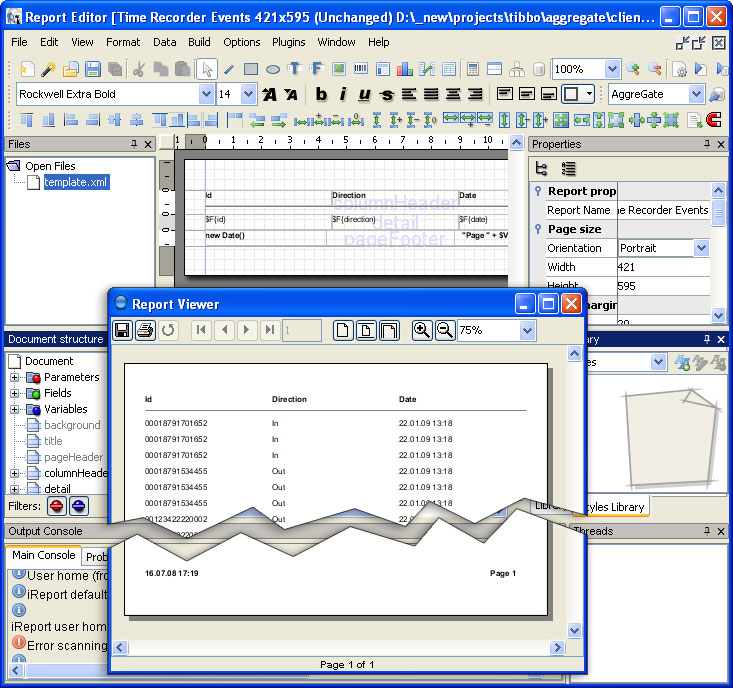
"All Events" Filter. Event filters may be now configured to show all events arriving from a certain hardware device.
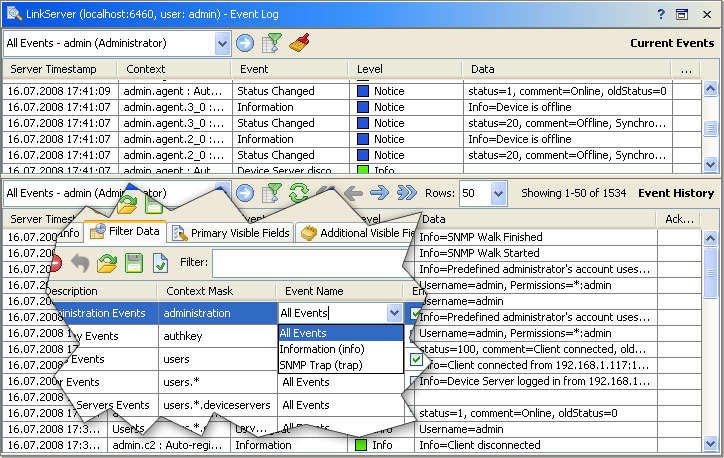
Data Export/Import. The Data Editor now supports export/import with XML, HTML, Character Separated Values (CSV) and Microsoft Excel, all in addition to previously available PDF and RTF export.
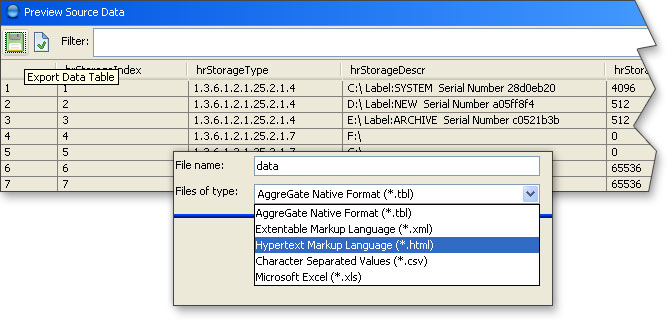
Charts. The new charting facility lets you monitor both historical and real-time values using pie charts, bar charts, histograms, etc. Every chart may include several data series. Charts based on custom data (without time axis) are also supported.
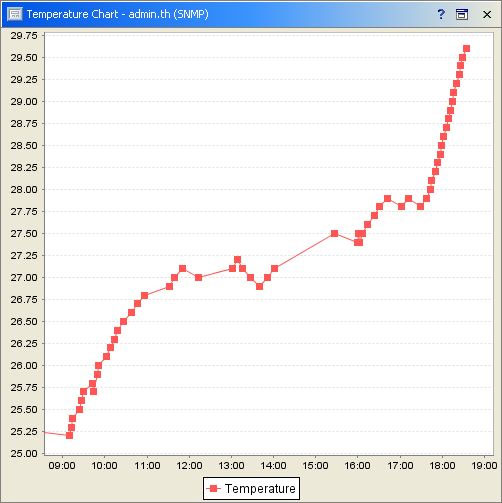
Tabbed layout in Properties Editor. This layout improves usability by allowing fast switching between different groups of properties.
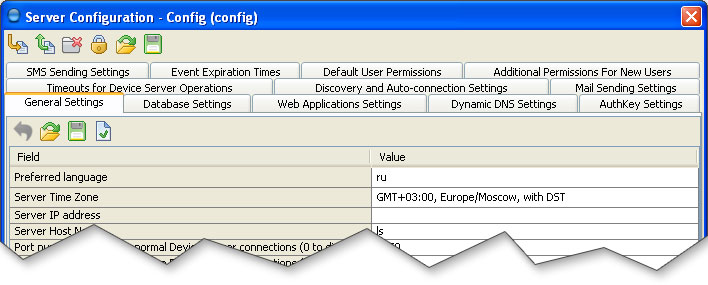
Documentation update. AggreGate manual was significantly updated and now includes more than six hundred pages. We have added many additional examples and in-depth explanations of complex subjects. We've also added How-To articles providing step-by-step explanations of common device management operations based on real device examples.
